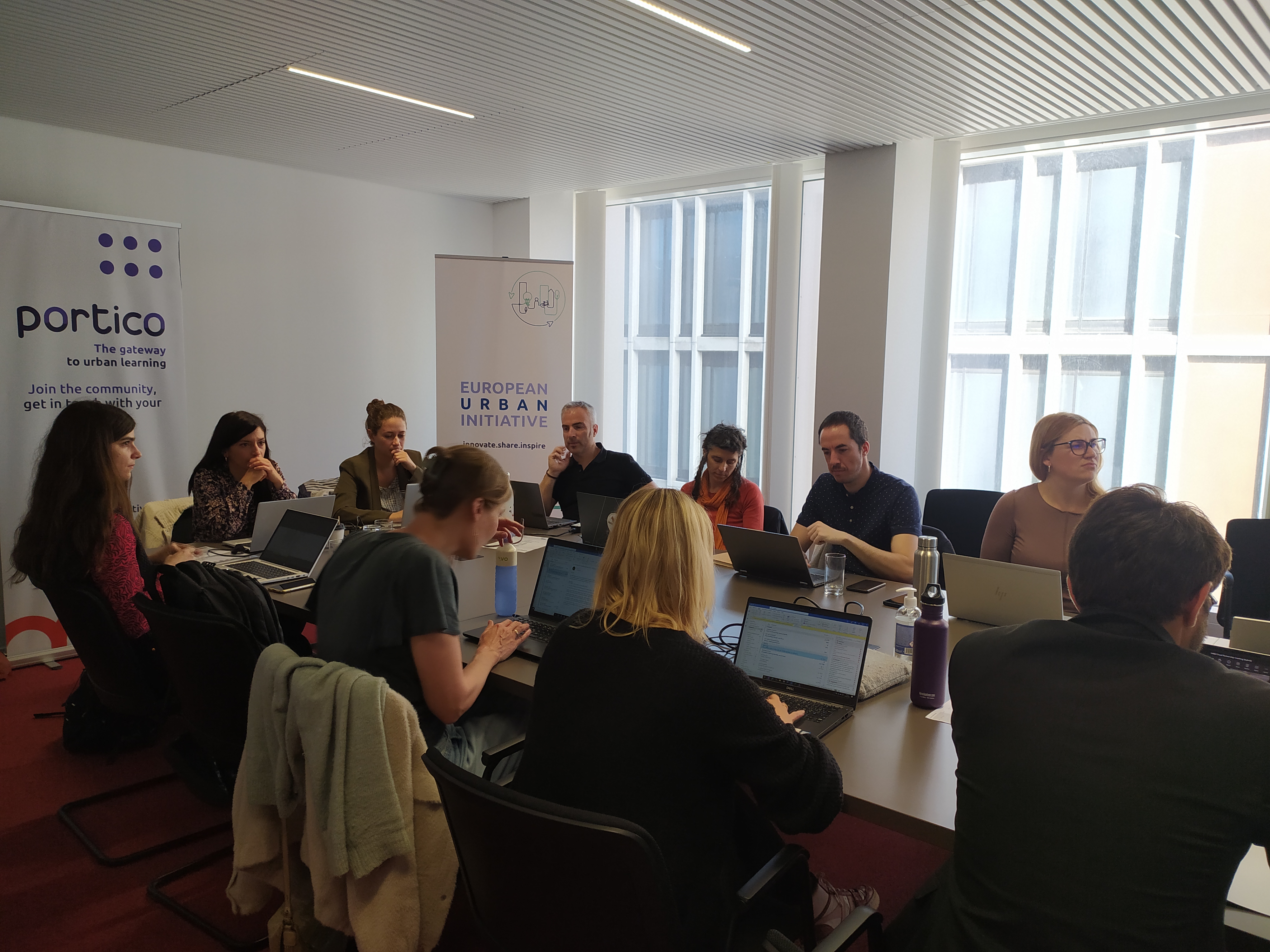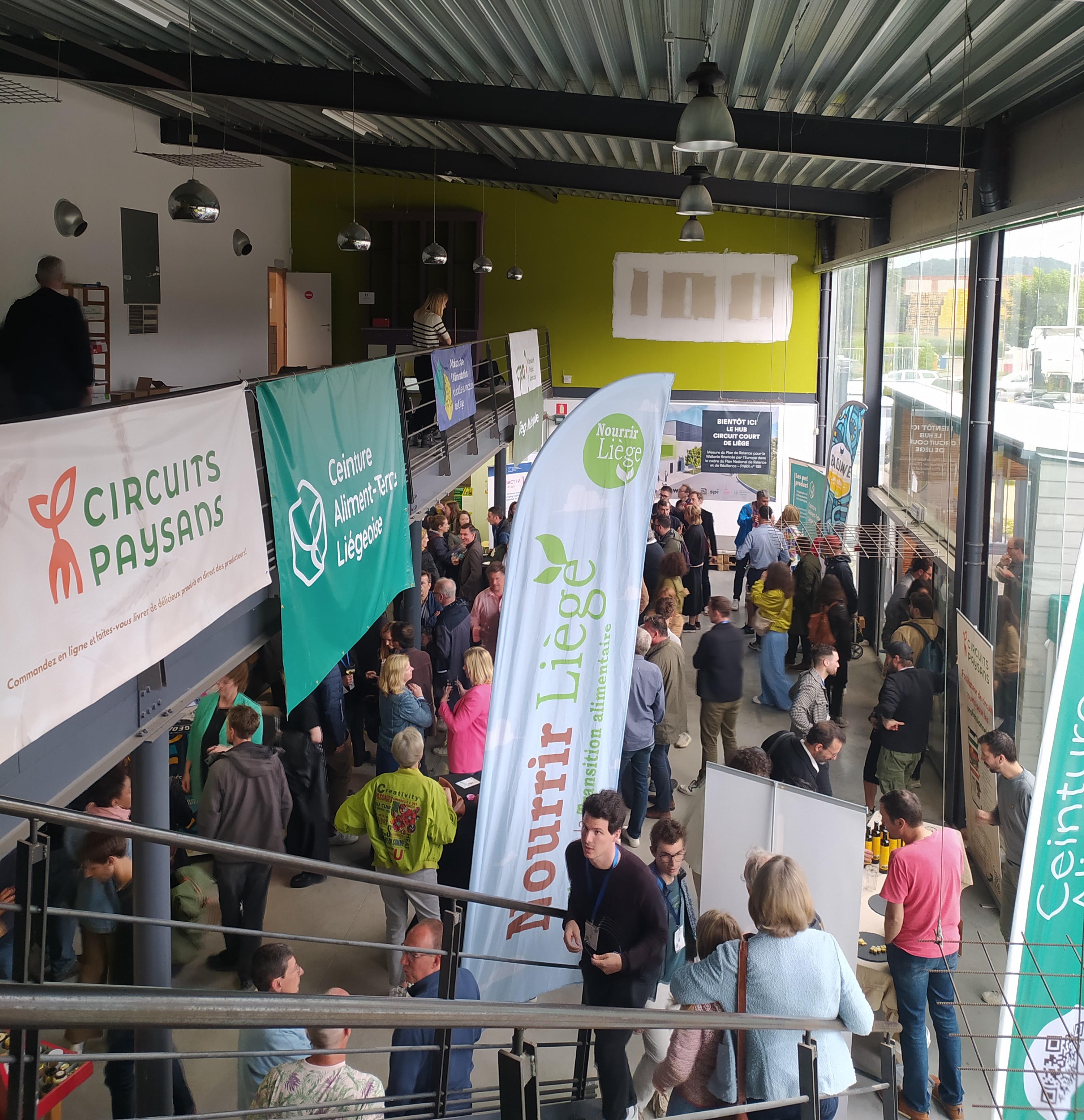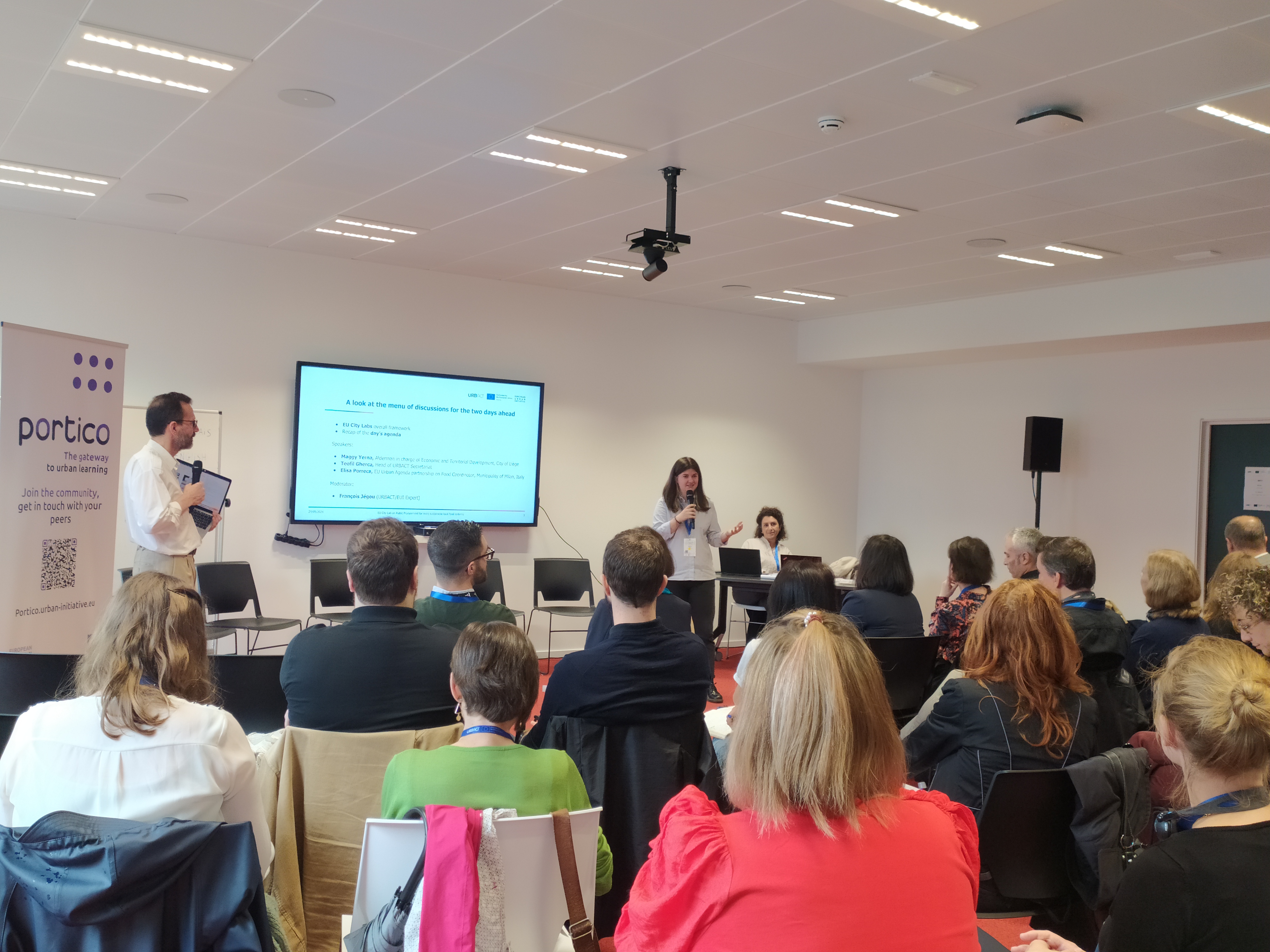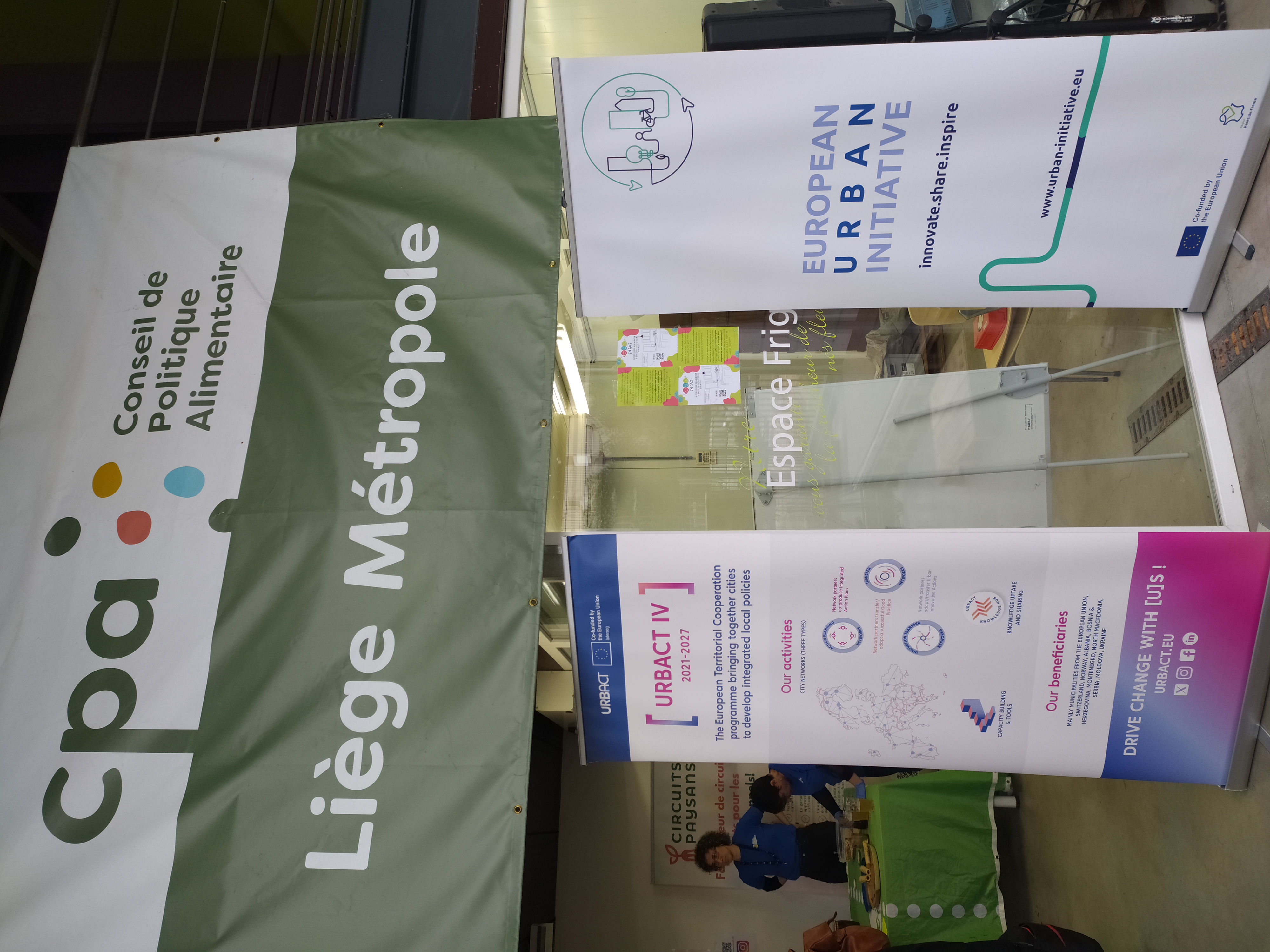
A joint event for the Food Partnership: in-person meeting and EU City Lab on food in Liége
A productive meeting for a more focused approach
Partners met on the 28th May at the headquarters of the administrative city of Liège for the 6th partnership meeting, organised as hybrid event. The meeting was productive in finalising the composition of the thematic working groups and clarifying the roles and responsibilities of working groups’ leaders and members, as well as the general management rules of the Partnership. Members agreed on the importance of involving, in key phases of the partnership process, other key stakeholders, such as universities and research centres, cities, and national/regional administrations with key expertise on priority thematic areas so to enlarge the influence and impact of the partnership in transforming food systems.
Members of the partnership delved deeper into the definition of the focus areas of the 4 working groups (1. Innovative Funding; 2. City-region framework; 3.Capacity building; 4. EU/National regulation), addressing, in particular, the expected impacts of each thematic area.
One impact discussed within the EU/National Regulation working group is the increased awareness of food policy issues and the relevance of urban food systems among politicians, technicians and experts at different levels, thus to drive more comprehensive and integrated policies.
Advocacy and in-person meetings with EU and national representatives could be an effective raising awareness strategy. Also, the establishment of a formalised group of representatives from diverse stakeholders could play a pivotal role in ensuring that sustainable food policy remains a high priority on the agenda of the next EU Commission.
Expected impacts for all thematic working groups will be outlined in the Orientation Paper that partners should finalise by mid-July 2024.

Lessons learnt from success stories
At the end of the first day partners joined a site visit organised within the EU City Lab, to learn more about the “Bâtiment Horizon”, a new logistic hub for the “Pole Circuit Court” of Liège, which has made it possible to create a common hub for several distribution cooperatives of the Liège Food Belt (Ceinture Aliment-Terre Liégeoise – CATL) with storage, order preparation areas, offices and meeting rooms.
The hub will have a direct and positive impact on those involved in short distribution circuits in the province of Liège, making it easier to market local/regional sustainable products in response to consumer demand.
On the morning session of the EU City Lab the Food Thematic Partnership was presented by the representative of the City of Milan, Elisa Porreca, who shared with the attendees the state of the art and main ambitions of the Partnership.

During the EU City Lab members of the partnership had the opportunity to learn more about how to use public procurement as a lever to address wider economic, social and environmental challenges. Successful practices were illustrated by the cities of Brussels, Brussels Region, Gemeente Haarlem, Milan and Liège.
Key actors of the urban food system in Liège provided concrete examples of how cities can face the challenges of food system transformation by adopting a holistic approach.

The BioCanteens programme, for example, has been a trigger for a better collaboration between the Municipality's team, the public education staff and the inter-municipal staff (cooks, administration) for reaching key objectives such as: adaptation of the school menus to include organic, local, healthy, fresh and seasonal products; modification of contracts for schools and nurseries to achieve 100% organic and local food by 2024; development of a smart-phone application to make it easier for parents to order meals; setting up training courses on sustainable food for catering assistants.
Another key success factor was the collaboration between the public authorities of Liège and the Liège Food Belt (Ceinture Alimentaire Terre Liégeoise), a platform gathering more than 400 stakeholders in the region, including producers, market gardeners, organic groceries, sustainable canteens and restaurants. The tighter collaboration between the Liège Food Belt and the public authorities generated a booming dynamic to create a local healthy and sustainable food ecosystem.
Next steps
A global approach to public procurement of food is one of the key topics members of the Partnership will focus on in the next months to understand how to empower local governments to support healthy food systems and healthy landscapes. One of the key steps towards this direction will also be the creation of synergies with other ongoing Thematic Partnerships of the Urban Agenda for the EU, such as the Partnership on Public Procurement and the Greening Cities Partnership.